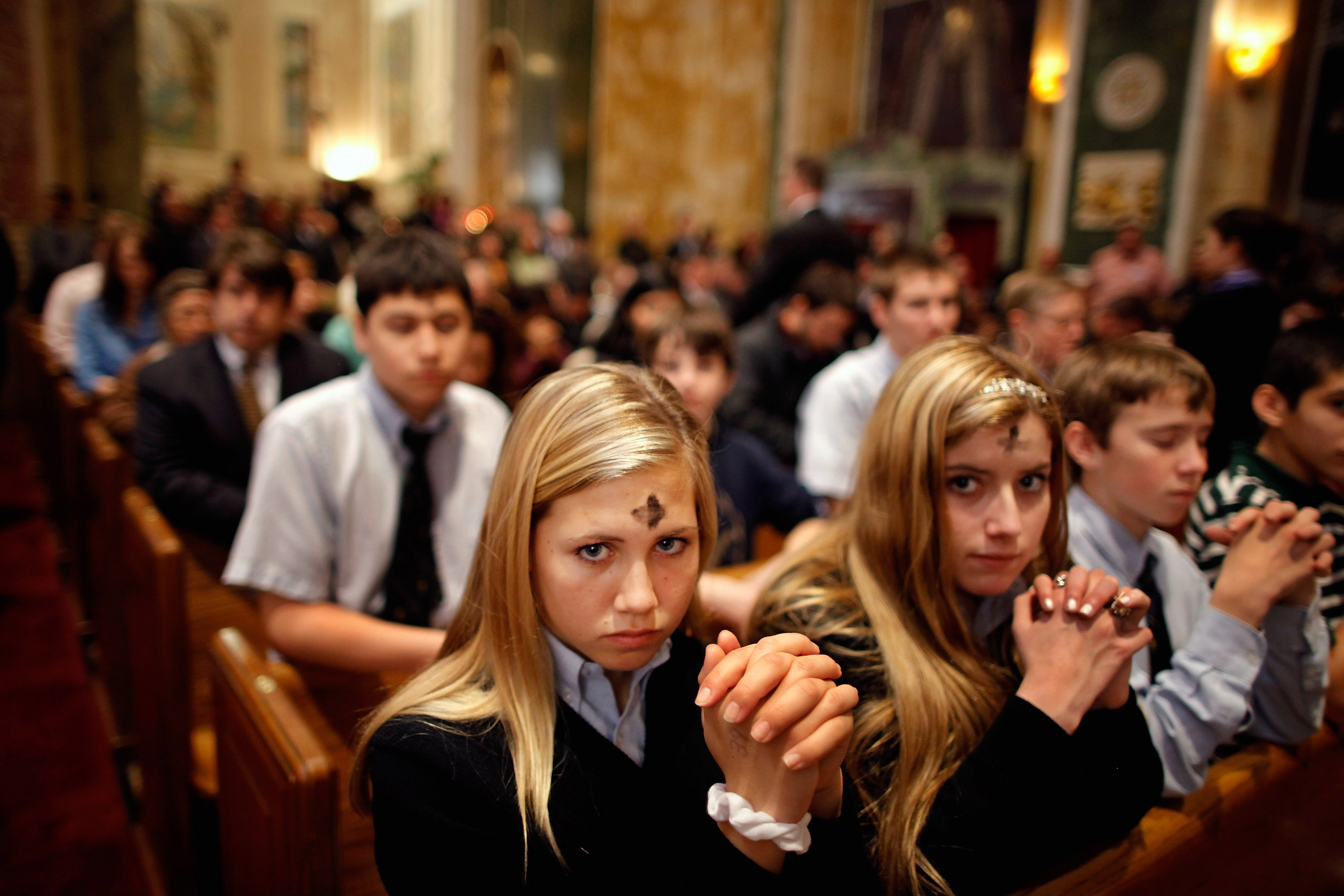Ash Wednesday is about death
The opening of Lent is about so much more than dieting. It's about death.


A free daily email with the biggest news stories of the day – and the best features from TheWeek.com
You are now subscribed
Your newsletter sign-up was successful
Today is Ash Wednesday, the holiday marking the beginning of Lent, the 40-day period of purification in which Christians often find something to "give up."
This ritual makes a lot of sense even in modern secular terms. We have juice fasts and cleanses, after all. And indeed, the idea that it could be helpful for all of us to try to get rid of, or at least pause, the superfluous things in our life to focus more on the essential is an idea that is present in spirituality both Eastern and Western, as well as in secular folklore.
Fasting yields spiritual benefits because it is a kind of spiritual workout. Physical exercise works by putting stress on our muscles, and this strengthens them. Something like dieting is worthwhile not just because we expect to get some material benefit from it, like lower weight or better health, but also the spiritual benefit of becoming less attached to material things.
The Week
Escape your echo chamber. Get the facts behind the news, plus analysis from multiple perspectives.

Sign up for The Week's Free Newsletters
From our morning news briefing to a weekly Good News Newsletter, get the best of The Week delivered directly to your inbox.
From our morning news briefing to a weekly Good News Newsletter, get the best of The Week delivered directly to your inbox.
But Lent is about much more than dieting. It's about death.
For starters, on Ash Wednesday, the priest draws a cross on your forehead with ashes, a reminder that "dust we are and to dust we shall return." That means death.
This is a part of the Catholic faith that I don't usually like. Not that death makes me uncomfortable — I believe in life everlasting — but because the faith has been corrupted by the idea that it is simply a get-out-of-hell card, a set of legalistic or pious requirements that one must accomplish to save one's soul. Christianity shouldn't just be about avoiding hell — it's about an encounter with a person whom, we believe, is love made flesh.
The point about ashes and turning away from fleshly reality also offers a reminder of another folk belief that has too long been associated with Christianity: namely, the idea that this world is wholly corrupt and that the body and material goods are to be despised. This belief is actually condemned as a heresy by the Catholic Church, because the Bible affirms that God loves the material world he created.
A free daily email with the biggest news stories of the day – and the best features from TheWeek.com
And yet, while material things like food and drink and sex are all well and good, it is still the case that they are not the most important things in life. And moreover, it is still the case that those things can enslave us. "I can quit any time!" says the smoker, puffing in the rain with a grimace on his face. Tuning down some pleasures might make us realize how much of a hold they have on us.
A reminder of our maturity is perhaps one of the most salutary things we can experience. We are all mortal, and yet we spend our entire lives trying to distract ourselves from this fact. On a day-to-day basis, almost all of us like to think and live and behave as if we will live forever. But we won't. If you were to die tomorrow — or 40 days from now — what would you change? What would you do differently? Lent pushes us to ask these questions.
Lent is also about death for a much more fundamental reason, one which is much less secular than platitudes about the importance of clean living. Lent is spiritual preparation for the celebration of the Easter cycle, when Jesus Christ was crucified before rising from the dead three days later.
Jesus chose to pour out his divine love on the cross, to give himself fully to us, in an acrobatic act of love that would in a mysterious way bind us to him. Christians, then, are called to imitate him by "dying" — that is to say, by renouncing everything apart from this divine love, everything apart from love of God and love of fellow man.
This, rather than Lent, is the real meaning of Ash Wednesday. I hope you can partake in it.
Pascal-Emmanuel Gobry is a writer and fellow at the Ethics and Public Policy Center. His writing has appeared at Forbes, The Atlantic, First Things, Commentary Magazine, The Daily Beast, The Federalist, Quartz, and other places. He lives in Paris with his beloved wife and daughter.
-
 Switzerland could vote to cap its population
Switzerland could vote to cap its populationUnder the Radar Swiss People’s Party proposes referendum on radical anti-immigration measure to limit residents to 10 million
-
 Political cartoons for February 15
Political cartoons for February 15Cartoons Sunday's political cartoons include political ventriloquism, Europe in the middle, and more
-
 The broken water companies failing England and Wales
The broken water companies failing England and WalesExplainer With rising bills, deteriorating river health and a lack of investment, regulators face an uphill battle to stabilise the industry
